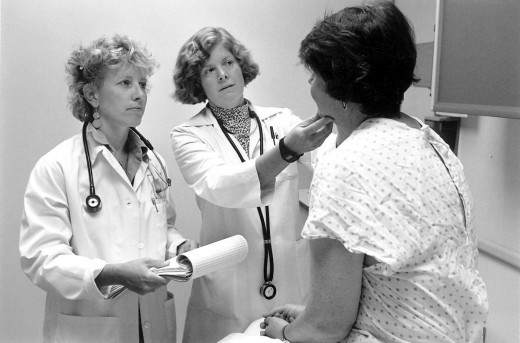Importance of Your Emergency Contact Person
Person to Contact in Case of Emergency
We've all filled out paperwork at a job or the physician's office that asks us to list the name and phone number of an emergency contact person. If you're like me, you've usually given little thought to the process and simply filled in the name and phone number of someone close to you.
That suffices to fill in the blank, but will the person you've listed be available when contacted and able to provide necessary medical information?


Essential Medical Information
Your emergency contact person should be able to relay essential medical information to health care personnel should the need arise. That's the point of designating someone as your contact person.
Information that will be important for health care personnel to know in an emergency include any known drug allergies, chronic conditions such as diabetes or epilepsy, medications taken and any other significant medical information such as surgeries or implants.
If you are a recreational drug user, that is a fact that should be known by your emergency contact person. Such information could be life-saving.
Any documents you may have signed pertaining to health care such as a Living Will or organ donation may be important, depending on the emergency medical situation. Your emergency contact should have copies of these documents.
Emergency Medical Information to Keep at Home
Many people don't have a designated emergency contact on record or the medical emergency may take place at home or while out and about. You should take the time now to write your essential medical information on an index card or small piece of paper that can be carried in your wallet or purse at all times along with an emergency contact card.
Some communities have programs where a vial or other small container is provided that will hold a small sheet of paper with your pertinent information. These programs designate that the container will be put in the same place in your home by anyone in the community using the program. Many times the suggested place is your refrigerator. That way when emergency medical personnel come to your home, they know exactly where to go to find the needed information.
Contact your local ambulance service or city offices to learn if such a program is in place in your community.

Advance Directives
Advanced directives seems to be a topic akin to making out your will: You know it should be done, but you really don't want to do it. Stop procrastinating and get it done. If you change your mind in the future about what care you do and don't want in a life-threatening situation you can change the advanced directive.
Copies should be provided to your attending physicians, your emergency contact person and one somewhere in your home that is easily accessible. Completing advanced directives without providing to the appropriate people will make it less likely your wishes will be carried out should the need arise.
In summary, give thought to whom you will name as your emergency contact. Talk to that person before you use his name to ensure he agrees to fulfill the responsibilities of that position. As Ben Franklin said, "An ounce of prevention is worth a pound of cure." It could also mean the difference between life and death.






